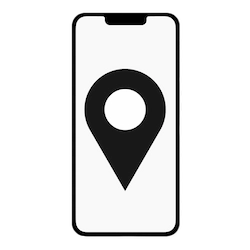How Long Do You Have to Report a Car Accident to Your Insurance Company?
After a car accident, amidst the initial shock and confusion, it’s imperative to consider the next steps for the legal and financial implications that may follow. A primary concern for many is reporting the incident to their insurance company. But how long exactly do you have to make that report?
Understanding the Importance of Timeliness
Firstly, it’s essential to understand the significance of promptly reporting an accident. Early reporting:
- Ensures compliance with policy terms:
- Your insurance policy is a contract between you and your insurer. To ensure you’re entitled to coverage, you must uphold your end of the agreement, which often includes prompt reporting of any incident.
- Facilitates accurate claim evaluation:
- Immediate reporting ensures the event details are fresh in your mind, leading to a more precise account. This can help adjusters efficiently assess damage and fault.
- Prevents potential fraud:
- Prompt reporting can deter false claims, reducing the window for potential fraudsters to fabricate or exaggerate claims.
General Timeline
While the specific timeline varies based on the insurance company and your location, many insurers generally expect you to report an accident promptly, often within 24 to 72 hours. However, this is a relatively easy rule. Policies might state “as soon as possible” without specifying a duration.
Legal Requirements
While insurance policies may have their conditions, states or jurisdictions might have statutory obligations. For instance:
- Some states require drivers to report any accident directly to the DMV or other state agency within a specified time if it involves injury, death, or exceeds a certain property damage threshold.
- Some localities mandate the police be informed immediately for certain types of incidents.
It’s crucial to familiarize yourself with your local laws to ensure compliance. This not only keeps you legally protected but also supports your insurance claim.
Exceptions & Variations
While the general advice is to report promptly, there are some nuances to consider:
- Severity:
- Minor accidents where no one’s hurt and the damage is negligible might not need immediate reporting. However, even in these cases, informing the insurance company to protect against unforeseen complications or potential disputes is a good idea.
- No-fault States:
- In no-fault insurance states, each driver’s insurance pays for their injuries or damages, regardless of who’s at fault. Reporting guidelines might differ here.
- Uninsured/Underinsured Motorist Coverage:
- If you’re in an accident with someone who lacks adequate insurance, your timeline for reporting might be tighter, especially if you plan to claim under your own uninsured or underinsured motorist coverage.
Consequences of Delayed Reporting
Failing to report an accident within the designated timeframe can have several repercussions:
- Claim Denial:
- Your insurer might deny your claim. This could mean paying out of pocket for repairs, medical expenses, or other liabilities.
- Premium Increases:
- Some insurers might raise your rates if they believe you’re not adhering to policy terms, even if they honor the delayed claim.
- Potential Legal Repercussions:
- If your delay in reporting breaches state laws, you could face fines, penalties, or other legal ramifications.
Best Practices for Reporting
- Document Everything:
- Take photos at the scene, gather witness details, and jot down your account of the incident. This aids in making a comprehensive report.
- Seek Medical Attention if Needed:
- Sometimes, injuries aren’t immediately evident. It’s wise to see a doctor post-accident to ensure you’re alright and to have a record if you later decide to claim medical expenses.
- Reach Out Even If Unsure:
- If you doubt the need for a claim, informing your insurer of the incident is still a good idea. They can guide you on the next steps without necessarily initiating a claim.
Conclusion
While timelines for reporting car accidents to insurance companies vary based on the policy and location, the golden rule is to do it promptly. Not only does this ensure compliance with your policy terms, but it also keeps you in a better position legally and financially. When in doubt, contact your insurance provider or seek legal counsel to ensure you make the right choices post-accident.
